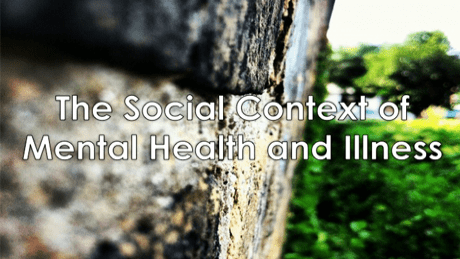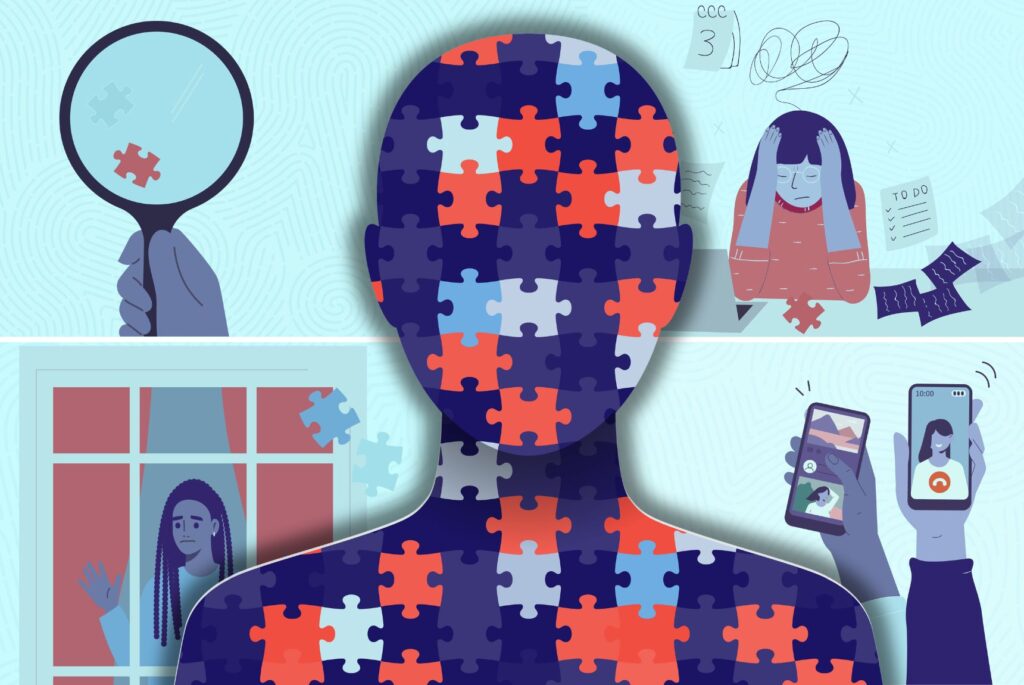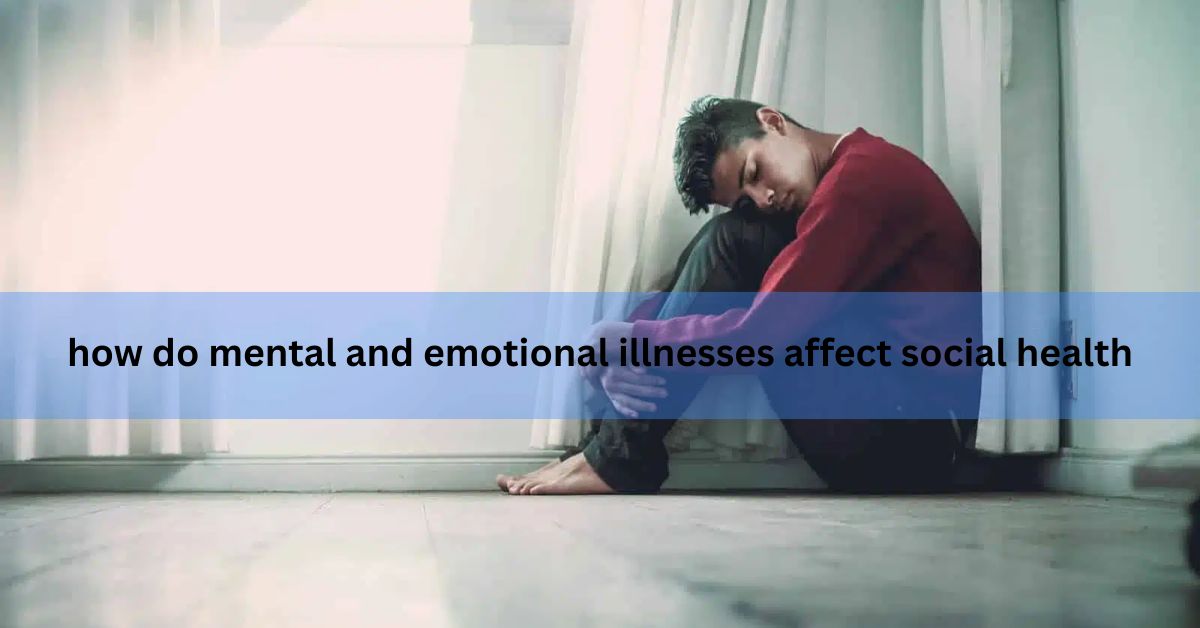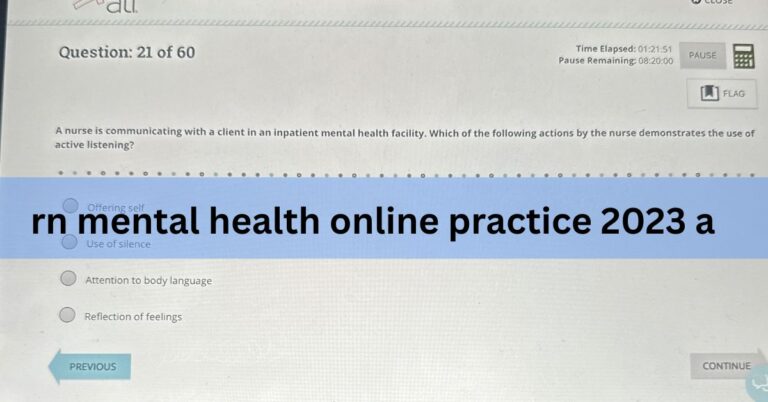How Do Mental and Emotional Illnesses Affect Social Health – A Deep Dive into the Human Connection!
Mental and emotional health are often discussed in relation to personal well-being, but one of their most significant—yet often overlooked—effects is on social health. Social health refers to our ability to form satisfying interpersonal relationships and adapt comfortably to different social situations. In today’s increasingly connected yet emotionally strained world, understanding the link between mental/emotional illnesses and social health is crucial for anyone striving for a balanced life.
This article delves deeply into how mental and emotional disorders influence social well-being, explores the roots of social difficulties, and provides realistic paths toward healing and growth.
Understanding Mental Health in the Social Context:

Mental health encompasses an individual’s cognitive, emotional, and behavioral functioning. When someone suffers from conditions like depression, anxiety, bipolar disorder, or PTSD, their ability to process thoughts clearly, manage emotions, and respond appropriately in social settings can become severely compromised.
For example, a person battling chronic anxiety may avoid social gatherings not because they don’t value relationships, but because their mind perceives even simple interactions as overwhelming or threatening. Similarly, someone with depression may find social activities exhausting, leading them to withdraw despite a deep yearning for connection.
Emotional Health and Its Role in Relationships:
Emotional health focuses on our ability to identify, express, and manage feelings in healthy ways. Someone emotionally healthy can handle setbacks without becoming overwhelmed, express their needs clearly, and empathize with others. On the other hand, when emotional health is impaired—often due to untreated trauma or prolonged stress—individuals may struggle with regulating their reactions or recognizing emotional cues in others.
These challenges often ripple into social interactions. Emotional numbness, sudden outbursts, or inability to express vulnerability can hinder relationship-building. Emotional instability may also lead to frequent conflicts, pushing people away and causing long-term loneliness.
What Is Social Health?
Social health isn’t just about having a wide circle of friends or an active social media presence. It’s about:
- Authenticity in connections
- Mutual support in relationships
- Adaptability in diverse social environments
- Communication based on empathy and respect
A socially healthy person usually feels a sense of belonging, acceptance, and connection. They can confide in others, set healthy boundaries, and resolve conflicts constructively. But when mental or emotional disorders interfere, these positive outcomes become harder to achieve.
Also Read: Is Gin Good for Health – A Comprehensive Look at the Evidence!
The Impact of Mental and Emotional Illnesses on Social Health:
Mental and emotional illnesses create barriers that directly interfere with a person’s capacity to engage socially. Here’s how:
Isolation and Social Withdrawal
Many individuals suffering from depression or anxiety isolate themselves either as a defense mechanism or out of sheer emotional exhaustion. This isolation leads to reduced exposure to supportive environments, which only deepens the mental health struggle, creating a vicious cycle. As days of solitude accumulate, so does the disconnection from others, feeding a sense of unworthiness and making re-entry into social life feel daunting.
Impaired Communication and Social Cues
Mental illnesses often impair communication skills, including verbal articulation, facial expression, and emotional attunement. Someone experiencing paranoia might interpret innocent comments as threats, while someone with ADHD may interrupt or dominate conversations unknowingly. These disruptions strain relationships, reduce social acceptance, and further marginalize those already struggling.
Low Self-Worth and Poor Confidence
Conditions such as depression often involve persistent negative self-talk, leading individuals to feel they’re a burden to others. This lack of confidence creates hesitation in initiating or maintaining relationships. Over time, low self-esteem erodes the trust necessary for forming close bonds, increasing emotional vulnerability and contributing to further isolation.
Trust Issues and Emotional Guarding
Many people with PTSD or those recovering from abuse may develop difficulty trusting others. They may fear rejection, betrayal, or emotional harm. Consequently, they may build psychological walls, avoid intimacy, and reject help—even when they desperately want to connect. This protective mechanism can be misread by others as coldness or indifference, further straining social ties.
Emotional Dysregulation in Social Settings
Emotional illnesses, particularly those associated with mood disorders or personality disorders, often involve challenges in regulating emotional responses. Emotional outbursts, inappropriate reactions, or visible discomfort can make others uncomfortable or unsure of how to respond. As a result, people may avoid interactions, leaving the affected individual feeling further misunderstood and excluded.
Building Social Health While Navigating Mental and Emotional Challenges:

Despite the profound impact of mental and emotional illnesses, social health can be nurtured and rebuilt. Doing so not only enhances relationship quality but also acts as a buffer against the intensity of psychological distress.
Start Small and Stay Consistent
Rebuilding social health doesn’t mean immediately attending large gatherings or becoming the life of the party. Start with a small, consistent effort—a text to a friend, a short conversation with a colleague, or joining a small support group. These small victories restore confidence and gradually decrease social anxiety.
Practice Active Listening and Empathy
Those with mental or emotional struggles often feel unheard. By learning to actively listen, not only do we improve our connections, but we also feel more engaged and valued in return. Practicing empathy—both for others and oneself—builds compassion and reduces self-criticism.
Attend Social Events That Reflect Your Interests
Whether it’s a book club, art class, or fitness group, engaging in shared-interest spaces makes socializing easier. When the focus is on a shared activity rather than forced conversation, relationships can develop more organically.
Seek Professional and Community Support
Therapists, counselors, or peer support groups can help individuals develop effective communication skills, manage emotional triggers, and reframe social fears. Mental health professionals can also provide guidance tailored to individual needs, making the journey more manageable.
Reflect and Stay Open to Feedback
Self-awareness is key. After social interactions, reflecting on what went well and what could be improved fosters growth. It’s also helpful to remain open to feedback from trusted individuals, which can offer perspective and encourage healthier social habits.
FAQ’s:
1. How does depression impact my ability to maintain friendships?
Depression can cause fatigue, negative self-perception, and social withdrawal, making it difficult to reach out, respond to messages, or engage in social activities—even when the desire for connection is there.
2. Why do I feel more isolated when I’m anxious in social situations?
Anxiety often leads to overthinking social interactions or fearing judgment, which can push people to avoid situations altogether, creating a sense of loneliness and disconnection.
3. Can therapy help improve my social health?
Yes, therapy can provide tools to manage emotions, build communication skills, and address underlying fears or trauma that interfere with your ability to connect with others.
4. Is emotional health different from mental health?
While closely related, emotional health focuses on how you process and express feelings, while mental health encompasses cognitive function, mood, and behavior. Both influence your social well-being.
5. How can I support a loved one whose mental illness affects their social life?
Offer consistent, non-judgmental support. Listen without trying to “fix” them, and encourage professional help if needed. Your presence and patience can make a huge difference.
Final Thoughts:
The intersection of mental, emotional, and social health is powerful and complex. When mental and emotional illnesses go untreated, social health deteriorates, often leading to a cascade of further complications, including loneliness, addiction, and worsening symptoms. However, with mindful effort, supportive relationships, and professional guidance, individuals can heal and thrive socially—even amidst internal struggles.
Read More:






